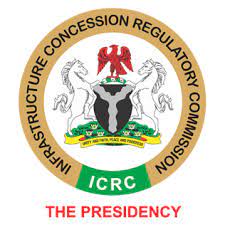Business News
ICRC Gazettes 53 PPP Projects Worth $22bn for Investors

By Tony Obiechina, Abuja
The Infrastructure Concession Regulatory Commission is set to gazette a total of 53 eligible and bankable Public Private Partnership projects, worth about $22bn for investors.
Already, the Commission has published 51 eligible and bankable PPP projects, worth over $17bn from different economic sectors which have been granted the Outline Business Case Compliance Certificates, but which did not have identified bidders.
The Director-General of ICRC, Mr Michael Ohiani made these disclosures at the Africa Public Private Partnership Network Investment summit with the theme: “Financing Africa’s infrastructure through Public Private Partnership”, in Abuja on Monday.
He told participants at the event that as of May 2022, there are 77 post-contract PPP projects under implementation at the ICRC Projects Disclosure Portal.
The portal is the first disclosure portal in the world, established by the ICRC in collaboration with the World Bank.
The ICRC DG pointed out that the Commission has about 197 pre-contract projects at different phases of project development and procurement.
Similarly, he said the agency since it was created has achieved a lot, noting for instance that between 2010 following the inauguration of its Governing Board and 2021, under the regulatory guidance of the ICRC, the federal government has approved PPP projects worth more than $9bn.
The ICRC Boss also disclosed that the agency has issued 128 Outline Business Case Compliance Certificates to date, stating that these projects have been certified bankable projects, to enable them proceed to procurement phase.
He said, “This Investment Summit is coming at a time when the continent is gradually coming out of the COVID 19 pandemic, which dealt series of blows to investment portfolios and decisions; as well implementation of on-going infrastructure service delivery projects.
“The Pandemic also affected the ability of governments to finance the much-needed public projects, with its attendant record of dwindling revenue.
“Our country was not spared from these challenges; however, there is the growing need to salvage our projects which are under implementation on one hand while developing bankable and viable PPP projects for investment on the other hand.
“The innovative structuring of PPP transactions through globally accepted competitive and transparent processes cannot be over-emphasized; especially as the initiative is in support of our 2021 to 2025 Mid-Term National Development Plan, which projects the use of private sector financing to achieve about 85 per cent of our N348.1trn Plan.”
He said as countries look towards infrastructure financing, the key in the 21st century is for governments to enhance the investment environment for national level investment for local and foreign investors, and look to innovative financing mechanisms that promote local capital markets, private sector risk, and rely on regulatory systems to balance investor and consumer requirements.
With fiscal and budgetary funding constraints plaguing governments across the continent, the ICRC DG told participants that private participation in infrastructure has become an economic necessity, rather than an optional financing solution, as hitherto considered.
“Partnership between the public and private sectors for the financing, design, build, maintenance of infrastructure and delivery of associated services is absolutely necessary for Africa governments to meet the need for modern and efficient infrastructure, and for reliable cost-effective delivery of public services.
“Governments all over the world, including the Africa continent, have come to recognize that the collaboration between public and private sectors is crucial to securing dependable and sustainable funding for infrastructure and reducing the pressure on fiscal budgets.
“PPP arrangements have engendered acceleration of infrastructure provision, faster implementation of projects, and reduced whole life costs of projects,” he added.
He expressed optimism that the Summit on financing Africa’s infrastructure through PPP would provide the unique opportunity to have the details, the direction, the options, and focus on infrastructure financing to boost the African economy.
In his keynote address at the event, the Secretary to the Government of the Federation, Mr Boss Mustapha, stated that Africa faces huge infrastructure gaps.
However, he pointed out that these infrastructure gaps also present huge opportunities for private investment through public-private partnerships, especially in sectors such as energy, housing, transportation, agriculture, technology, waste management, and social services and amenities.
According to him, the continent requires energy, transportation, and new satellite cities to accommodate millions of people moving from rural to urban areas.
He said, “The current economic growth pattern on the continent stresses the importance of private sector investment through PPP in promoting Africa’s growth and structural transformation.
“Hence, identifying the private sector development as an engine of sustainable structural transformation through PPPs is of critical importance to the continent.
“Indeed, to release the potential of Africa, there is the need to develop and imbibe a resilient and vibrant PPP framework as a means of facilitating rapid infrastructure transformation of the continent.”
To be able to stimulate and create a vibrant private sector on the continent and accelerate infrastructure development, the SGF stated that a number of issues must be addressed.
“There is definitely the need to create a welcoming investment climate. This can be achieved by reducing risks and costs of doing business and by securing private property rights, improving governance, fighting corruption, simplifying regulations, and promoting competition.
“African governments must also resist pressure to erect trade barriers for intra-African trade to flourish. Currently, intra-African trade amongst African states is about 10 per cent of total exports. This is the lowest amongst other regions in the world.
“But we strongly believe that with the initiative of the African Continental Free Trade Agreement the situation will drastically improve,” he added.
Mustapha said there is also the need for financial sector development by strengthening regulatory and institutional frameworks to improve governance and increase competition, improving access to finance and financial literacy, developing payment systems, and enhancing creditor rights.
In his goodwill message, the Director-General of the Nigerian Governors Forum (NGF), Mr Asishana Okauru, said the Public-Private Partnerships (PPPs) have shown that if properly structured, could be an effective infrastructure financing and delivery tool.
“In Nigeria, proactively we have already begun this process as the Nigeria Governors’ Forum in collaboration with the ICRC has established the Nigeria Public-Private Partnership Network to address the issues and bottlenecks towards Infrastructural development of strategic sectors of the subnational economy by public-private partnerships”, he stated.
He noted that the NGF believes that improving the capacity and resources of State governments to prepare PPP pipelines and bankable PPP projects, offers a sustainable long-term approach to improving social infrastructure, enhancing the value of public sector assets, and making better use of taxpayers’ money
Business News
Tinubu Congratulates Dangote on World Bank Appointment

By Jennifer Enuma, Abuja
President Bola Tinubu has congratulated Alhaji Aliko Dangote, the President of Dangote Group, on his appointment to the World Bank’s Private Sector Investment Lab, a body tasked with promoting investment and job creation in emerging economies.
In a statement by Special Adviser on Media and Publicity, Bayo Onanauga, the President described the appointment as apt, given Dangote’s rich private sector experience, strategic investments, and many employment opportunities created through his Dangote Group.
The Dangote Group became one of Africa’s leading conglomerates through innovation and continuous investment.
Dangote Group’s business interests span cement, fertiliser, salt, sugar, oil, and gas. However, the $20 billion Dangote Petroleum Refinery and Petrochemicals remains Africa’s most daring project and most significant single private investment.
“President Tinubu urges Dangote to bring to bear on the World Bank appointment his transformative ideas and initiatives to impact the emerging markets across the world fully” the statement said.

The World Bank announced Dangote’s appointment on Wednesday, as part of a broader expansion of its Private Sector Investment Lab. The lab now enters a new phase aimed at scaling up solutions to attract private capital and create jobs in the developing world.
The CEO of Bayer AG, Bill Anderson, the Chair of Bharti Enterprises, Sunil Bharti Mittal, and the President and CEO of Hyatt Hotels Corporation, Mark Hoplamazian, are on the Private Sector Investment Lab with Dangote.
The World Bank said the expanded membership brings together business leaders with proven track records in generating employment in developing economies, supporting the Bank’s focus on job creation as a central pillar of global development.
Business Analysis
Nigeria Customs Generates over N1.75trn Revenue in 2025
By Joel Oladele, Abuja
The Nigeria Customs Service (NSC) has generated an impressive N1,751,502,252,298.05 in revenue during the first quarter of 2025.
The Comptroller-General (CG) of the Service, Bashir Adeniyi, disclosed this yesterday, during a press briefing in Abuja.
According to Adeniyi, the achievement not only surpasses the quarterly target but also marks a substantial increase compared to the same period last year, reflecting the effectiveness of recent reforms and the dedication of customs officers across the nation.
“This first quarter of 2025 has seen our officers working tirelessly at borders and ports across the nation.
I’m proud to report we’ve made real progress on multiple fronts—from increasing revenue collections to intercepting dangerous shipments,” Adeniyi stated.He attributed this success to the reforms initiated under President Bola Tinubu’s administration and the guidance of the Honourable Minister of Finance and Coordinating Minister of the Economy, Olawale Edun.
The CG noted that the revenue collection for Q1 2025 exceeded the quarterly benchmark of N1,645,000,000,000.00 by N106.5 billion, achieving 106.47% of the target. This performance represents a remarkable 29.96% increase compared to the N1,347,705,251,658.31 collected in Q1 2024.
Adeniyi highlighted the month-by-month growth, noting that January’s collection of N647,880,245,243.67 surpassed its target by 18.12%, while February and March also showed positive trends.
“I’m pleased to report the Service’s revenue collection for Q1 2025 totaled N1,751,502,252,298.05.
“Against our annual target of N6,580,000,000,000.00, the first quarter’s proportional benchmark stood at N1,645,000,000,000.00. I’m proud to announce we’ve exceeded this target by N106.5 billion, achieving 106.47% of our quarterly projection. This outstanding performance represents a substantial 29.96% increase compared to the same period in 2024, where we collected N1,347,705,251,658.31.
“Our month-by-month analysis reveals even more encouraging details of this growth trajectory,” Adeniyi said.
In addition to revenue collection, Adeniyi said the NCS maintained robust anti-smuggling operations, recording 298 seizures with a total Duty Paid Value (DPV) of ₦7,698,557,347.67.
He stated that rice was the most seized commodity, with 135,474 bags intercepted, followed by petroleum products and narcotics.
“From rice to wildlife, these seizures show our targeted approach,” Adeniyi remarked, noting the NCS’s commitment to combating smuggling and protecting national revenue.
Adeniyi also highlighted key initiatives, including the expansion of the B’Odogwu customs clearance platform and the launch of the Authorized Economic Operators Programme, which aims to streamline processes for compliant businesses. The NCS’s Corporate Social Responsibility Programme, “Customs Cares,” was also launched, focusing on education, health, and environmental sustainability.
Despite these achievements, the CG noted that the NCS faced challenges, including exchange rate volatility and non-compliance issues. Adeniyi acknowledged the need for ongoing adaptation and collaboration with stakeholders to address these challenges effectively.
Looking ahead, the NCS aims to continue its modernization efforts and enhance service delivery, ensuring that it remains a critical institution in Nigeria’s economic and security landscape.
“Results speak louder than plans; faster clearances through B’Odogwu, trusted traders in the AEO program, and measurable food price relief from our exemptions. We’ll keep scaling what works,” he concluded.
BUSINESS
NSIA Net Assets Hit N4.35trn in 2024
By Tony Obiechina Abuja
The Nigeria Sovereign Investment Authority (NSIA) yesterday disclosed that its net assets grew from N156bn in 2013 to N4.35 trillion in 2024.
Similarly, the Authority has remained profitable for 12 consecutive years, leading to cumulative retained earnings of N3.
74 trillion in 2024.Managing Director and Chief Executive Officer of NSIA, Aminu Umar- Sadiq made these disclosures at a media engagement in Abuja, highlighting its audited financial results for the 2024 fiscal year.
According to him, the results underscored the resilience of the authority’s investment strategy and the strength of its earnings, driven by a well-diversified revenue base and robust risk management practices, despite a challenging global macroeconomic and geopolitical environment.
Total operating profits, excluding share of profits from associates and Joint Venture (JV) entities, increased from N1.17 trillion in 2023 to N1.86 trillion in 2024, driven by the strong performance of
NSIA’s diversified investment portfolio, infrastructure assets, gains from foreign exchange movements, and derivative valuations.
In addition, Total Comprehensive Income (TCI), inclusive of share of profits from associates and JV entities, reached N1.89 trillion in 2024, reflecting a 59 per cent increase from N1.18 trillion in 2023.
Core TCI (excluding foreign exchange and derivative valuation gains) rose by 148 per cent to N407.9 billion in 2024 compared to N164.7 billion in 2023, supported by robust returns on financial assets measured at fair value through profit and loss, including collateralised securities, private equity, hedge funds, and Exchange-Traded Funds (ETFs).
Umar-Sadiq said the authority’s outstanding financial performance in 2024 reflected the “strength of our strategic vision, disciplined execution and unwavering commitment to sustainable socio-economic advancement.”
He said, “By leveraging innovation, strategic partnerships and sound risk management, we have not only delivered strong returns but also created value for our stakeholders
“As we move forward, we remain focused on driving economic transformation, expanding opportunities, scaling transformative impact and ensuring long-term prosperity for current and future generations of Nigerians.”
The CEO reaffirmed the authority’s commitment to managing the country’s SWF, and delivering the mandates enshrined in the NSIA Act.
He said NSIA remained poised to continually create long-term value for its stakeholders by delivering excellent risk-adjusted financial results, developing a healthy and well-diversified portfolio of assets and large-scale infrastructure projects, and enhancing the desired social outcomes.
He noted that NSIA was committed to its mandate of prudent management and investment of Nigeria’s sovereign wealth.
“In adherence to its Establishment Act, NSIA prioritises transparency, disclosure, and effective communication with all stakeholders and counterparties,” he said.
He pointed out that in the year under review, a new board, led by Olusegun Ogunsanya as Chairman, was appointed by President Bola Tinubu, in accordance with the provisions of the NSIA Act.
The new board will provide strategic direction and oversight, in addition to playing a pivotal role in critical decision making.
He remarked that under the guidance of the Board, the Authority will retain focus on its primary mandate of creating shared value for all stakeholders based on its continued adoption of corporate governance practices.
“NSIA prides itself an investment institution of the federation established to manage funds in excess of budgeted oil revenues and its mission is to play a pivotal role in driving sustained economic development for the benefit of all Nigerians through building a savings base for the Nigerian people, enhancing the development of the county’s infrastructure, and providing stabilisation support in times of economic misadventure,” he added.


























